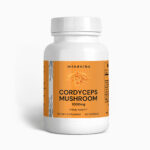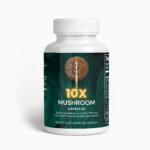
“The Relationship Between Gut Health and Mental Wellness”
As scientific research continues to uncover the intricate connections between the body and mind, it’s becoming increasingly evident that our gut health is crucial to our overall mental wellness. The idea of “gut feeling” has taken on a new meaning as research has shown the significant impact of the bacteria in our digestive tract on our mood, emotions, and cognitive function. In this article, we will explore the critical relationship between gut health and mental wellness, convincing you of the importance of maintaining a healthy gut for optimal mental health. Join us as we into the science behind this essential connection and discover what you can do to promote a healthy gut and a positive state of mind.
1. Introduction: Understanding the Link Between Gut Health and Mental Wellness
Many people don’t realize the connection between their gut health and mental wellbeing. But the fact is, the two are closely linked. Recent studies suggest that the state of your gut health can have a significant impact on your brain health, mood, and overall sense of wellbeing. Therefore, it’s crucial to pay attention to your gut health if you’re hoping to improve your mental wellness.
Research shows that there are trillions of bacteria living in your gut – these microorganisms play a vital role in your digestive health and immune system. However, they also impact your brain health, influencing how you feel and think. When you have an imbalance of bacteria in your gut, it can lead to inflammation and a weakened immune system, which can ultimately affect your mood and cognitive function. That’s why it’s crucial to maintain a healthy balance of gut bacteria.
If you’re hoping to improve your mental wellness, there are several steps you can take to support your gut health. These include eating a well-balanced, nutrient-dense diet, reducing stress levels, and incorporating probiotics into your diet. Probiotics are live bacteria and yeasts that are beneficial to your gut health. You can find probiotics in many foods, such as yogurt, kefir, sauerkraut, kimchi, and kombucha. Additionally, you may consider taking a high-quality probiotic supplement to further support your gut health. By taking these steps, you can support your gut health and ultimately improve your mental wellness.
2. The Gut-Brain Connection: How Your Digestive System Affects Your Mental Health
Your digestive system and brain are closely connected. This connection is commonly referred to as the gut-brain axis or the enteric nervous system. The gut-brain axis enables communication between the brain and the digestive system. It’s a two-way street where messages are constantly being sent and received.
When you experience stress, it can lead to physical symptoms in your gut, such as nausea, diarrhea, or constipation. Additionally, poor gut health can lead to a range of mental health problems such as anxiety, depression, and even autism. This is because the gut is home to trillions of bacteria that play a critical role in regulating your mood.
If you want to improve your mental health, you need to start by looking after your gut. One way to do this is by eating a diet that’s rich in whole foods like fruits, vegetables, and whole grains, and low in processed foods. Additionally, taking a probiotic supplement or eating fermented foods like yogurt or kimchi can introduce beneficial bacteria into your gut, which can support good mental health. Remember, your gut and brain work together, so by taking care of one, you’ll be improving the other.
3. What’s in Your Gut? The Role of Microbes in Mental Wellness
Microbes are tiny organisms that reside in your gut and play a crucial role in maintaining your overall health. Research shows that there’s a strong link between these microorganisms and your brain. More and more studies are pointing to the gut-brain connection, presenting a fascinating insight into how these microbes can impact mental health.
One of the ways gut microbes affect mental wellness is by regulating inflammation. Gut bacteria can either produce inflammatory or anti-inflammatory compounds, and they also interact with the immune system to modulate these responses. When there is an imbalance in the gut microbiome, it can cause chronic, low-level inflammation which can lead to anxiety, depression, and other mental health disorders.
Gut bacteria can also produce neurotransmitters such as serotonin, dopamine, and GABA, which are essential for mood regulation and mental well-being. For example, serotonin is a neurotransmitter that is responsible for regulating mood, appetite, and sleep cycle. A majority of the body’s serotonin is produced in the gut, which highlights the importance of maintaining a healthy gut microbiota for overall mental health.
- Takeaway: A healthy and balanced gut microbiome is crucial for maintaining mental wellness.
- Tip: Incorporate fermented foods like yogurt, sauerkraut, and kimchi into your diet to boost gut health.
- Fact: Research shows that dysbiosis, or an imbalance in the gut microbiome, is linked to mental health disorders like anxiety, depression, and autism spectrum disorders.
4. Gut-Healing Strategies: Ways to Improve Your Digestive Health and Boost Mood
It’s no secret that gut health plays a vital role in our overall well-being. Poor digestion can lead to a host of issues, from bloating and discomfort to anxiety and depression. Fortunately, there are several gut-healing strategies you can implement to improve your digestive health and boost your mood. Here are a few ways to get started:
- Incorporate probiotics: Consuming probiotics helps to replenish healthy gut bacteria, which can become depleted due to stress, poor dietary choices, and environmental toxins. Probiotic-rich foods include yogurt, kefir, and fermented vegetables.
- Practice mindful eating: Mindful eating involves slowing down and paying attention to the taste, texture, and sensations of the food you’re consuming. This practice can help improve digestion by increasing saliva production, which aids in the breakdown of food.
- Avoid trigger foods: Certain foods can be problematic for individuals with digestive issues, including gluten, dairy, and processed foods. Pay attention to how your body responds to different foods and eliminate any that seem to exacerbate your symptoms.
These gut-healing strategies may not provide immediate relief, but with consistent practice, they can lead to significant improvements in both digestive and overall health. Don’t underestimate the power of a healthy gut!
5. The Impact of Diet: Food Choices and Mental Health
Mental health is a crucial aspect of our wellbeing, and the food we eat can have a significant impact on how we feel. Eating a balanced and nutritious diet can help improve our mental health and prevent certain mental health conditions.
Incorporating foods such as whole grains, fruits, vegetables, and lean proteins into our diet can provide us with the necessary nutrients to function optimally. Additionally, consuming foods rich in omega-3 fatty acids, such as fatty fish, can help reduce symptoms of depression and anxiety.
- Examples of foods rich in omega-3s:
- Salmon
- Tuna
- Sardines
- Walnuts
- Flaxseeds
On the other hand, consuming a diet high in processed foods, refined sugars, and saturated fats can have a negative impact on our mental health. These foods can lead to inflammation in the body, which has been linked to depression and anxiety. Therefore, choosing to consume a diet rich in whole foods and low in processed foods can not only benefit our physical health but also our mental health.
6. The Gut-Brain Axis in Mental Health Disorders: A Look at Anxiety and Depression
The Significant Role of The Gut-Brain Axis in Anxiety and Depression
The gut-brain axis is a term used to describe the reciprocal communication network between the gastrointestinal tract and the central nervous system. Recent studies have highlighted the link between the gut microbial composition, the immune system, and brain function. Many factors can influence this complex interaction, including stress, diet, lifestyle habits, and environmental changes.
Anxiety and depression are among the most prevalent mental health disorders worldwide, and research has shown that alterations in the gut microbiome can affect their development and severity. In a study published in the Journal of Clinical Psychiatry, researchers found a lower diversity of gut bacteria in patients with major depressive disorder than in healthy controls. Other studies have shown that probiotics and prebiotics can improve emotional processing and reduce anxiety-like behaviors in animal models and human trials.
The gut-brain axis has immense potential in the field of mental health as it connects different organ systems, including the digestive, immune, and neurological systems. Therefore, maintaining a balanced gut microbiome through a healthy diet, regular exercise, stress reduction, and proper sleep hygiene can be an effective approach to improve mental health outcomes. Further research is necessary to elucidate the gut-brain axis mechanism of action and identify specific bacterial strains that can modulate brain function, but the current evidence suggests that it is a promising avenue for mental health treatment and prevention.
- Overall, the gut-brain axis plays a vital role in mental health disorders such as anxiety and depression.
- Altered gut microbiota has been linked to these disorders, and probiotics and prebiotics can help with emotional processing and reduce anxiety-like behaviors in animal models and human trials.
- Maintaining a balanced gut microbiome through a healthy lifestyle can be an effective strategy to improve mental health outcomes, and further research is necessary to identify specific bacterial strains that can modulate brain function.
7. Conclusion: Prioritizing Gut Health for Optimal Mental Wellness
When it comes to mental wellness, it can be easy to overlook the importance of gut health. However, research has shown that the state of our gut can have a significant impact on our mental well-being. Prioritizing gut health can greatly improve our mood, cognitive function, and overall quality of life.
One key way to prioritize gut health is through a healthy diet. Eating a balanced diet rich in fiber, whole grains, fruits, vegetables, and probiotics can promote the growth of beneficial gut bacteria, which can in turn positively impact our mental health. Eliminating processed and inflammatory foods can also improve gut health and reduce the risk of mental health issues.
Additionally, reducing stress and getting enough sleep are important for gut health and mental wellness. Chronic stress can disrupt gut flora and increase inflammation, while lack of sleep can also negatively impact gut health. Incorporating stress-reducing activities such as meditation and exercise, and prioritizing a consistent sleep schedule, can greatly benefit both gut health and mental health.
Overall, prioritizing gut health is essential for optimal mental wellness. By making small but significant changes to our diet and lifestyle, we can support the growth of beneficial gut bacteria and reduce the risk of mental health issues. Let’s commit to prioritizing our gut health and reaping the mental health benefits that come along with it.
It is clear that the connection between gut health and mental wellness is both unique and powerful. Taking steps to support and maintain the balance of beneficial bacteria in the gut can make a huge difference to one’s overall mental health. By nurturing our gut health in whatever ways work for us—whether it’s through diet, supplements, lifestyle changes or medications—we can increase our resilience to stress and help improve our wellness every day.

























